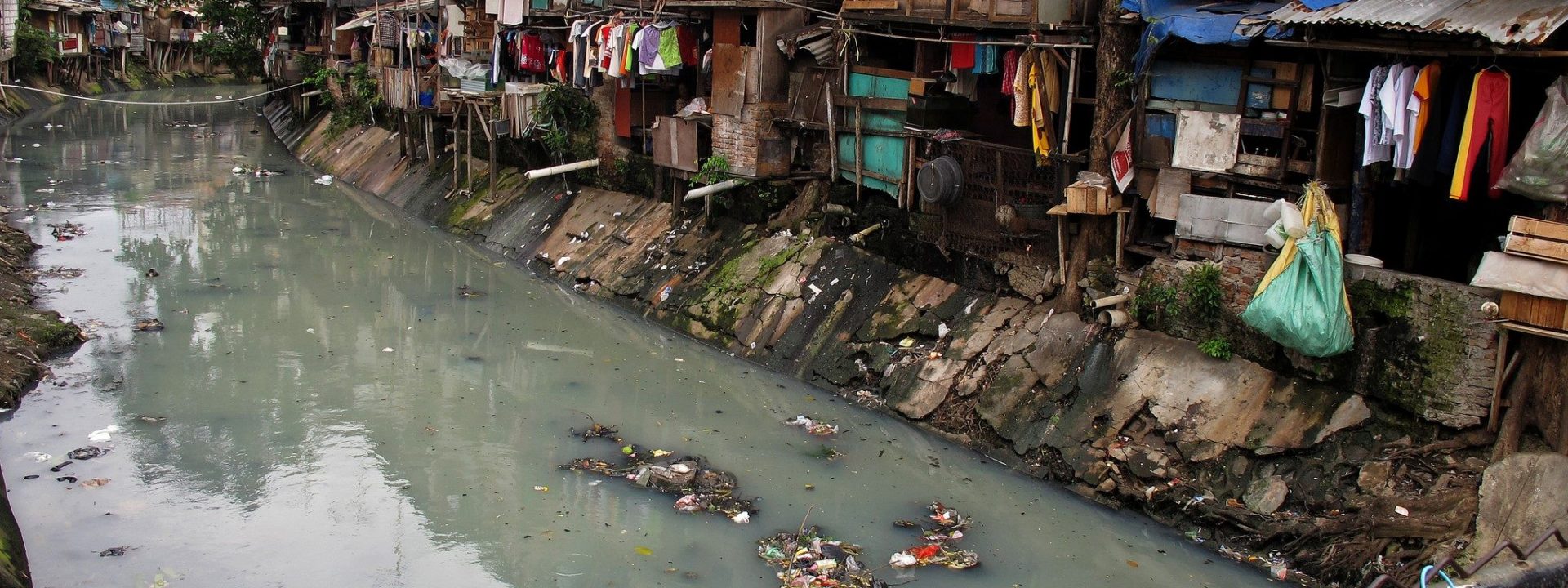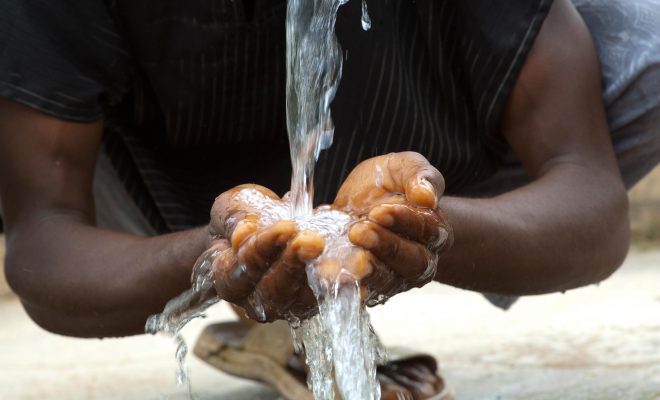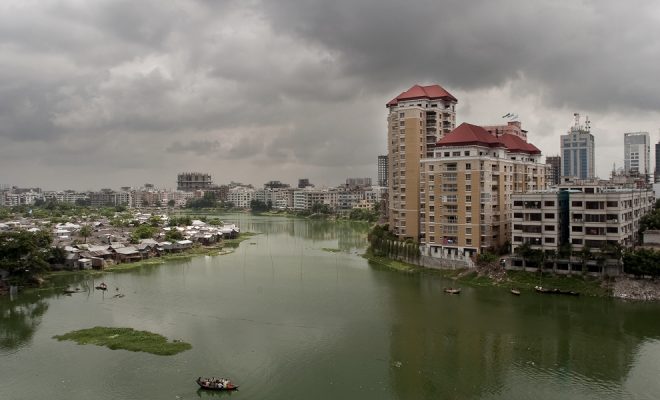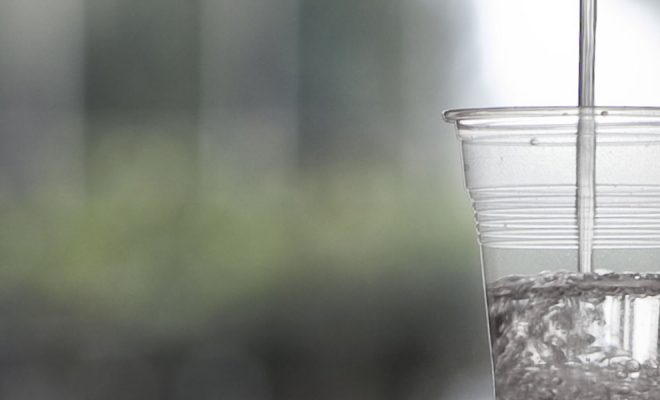There is an element that inevitably defines the Anthropocene: garbage. The era in which nature is being altered by human activity stands out for the proliferation of waste of all kinds scattered around the planet. The data is chilling: only in Europe, each citizen generates six tons of waste per year, which come from the 16 tons of material used in their daily life; meaning that the European Community generates over 3 billion tons of garbage every year. Only 50% of it was recycled in 2016, the rest, 1.5 billion tons, ends up in garbage dumps, or worse, scattered around the planet. Globally, waste water is part of this scourge.
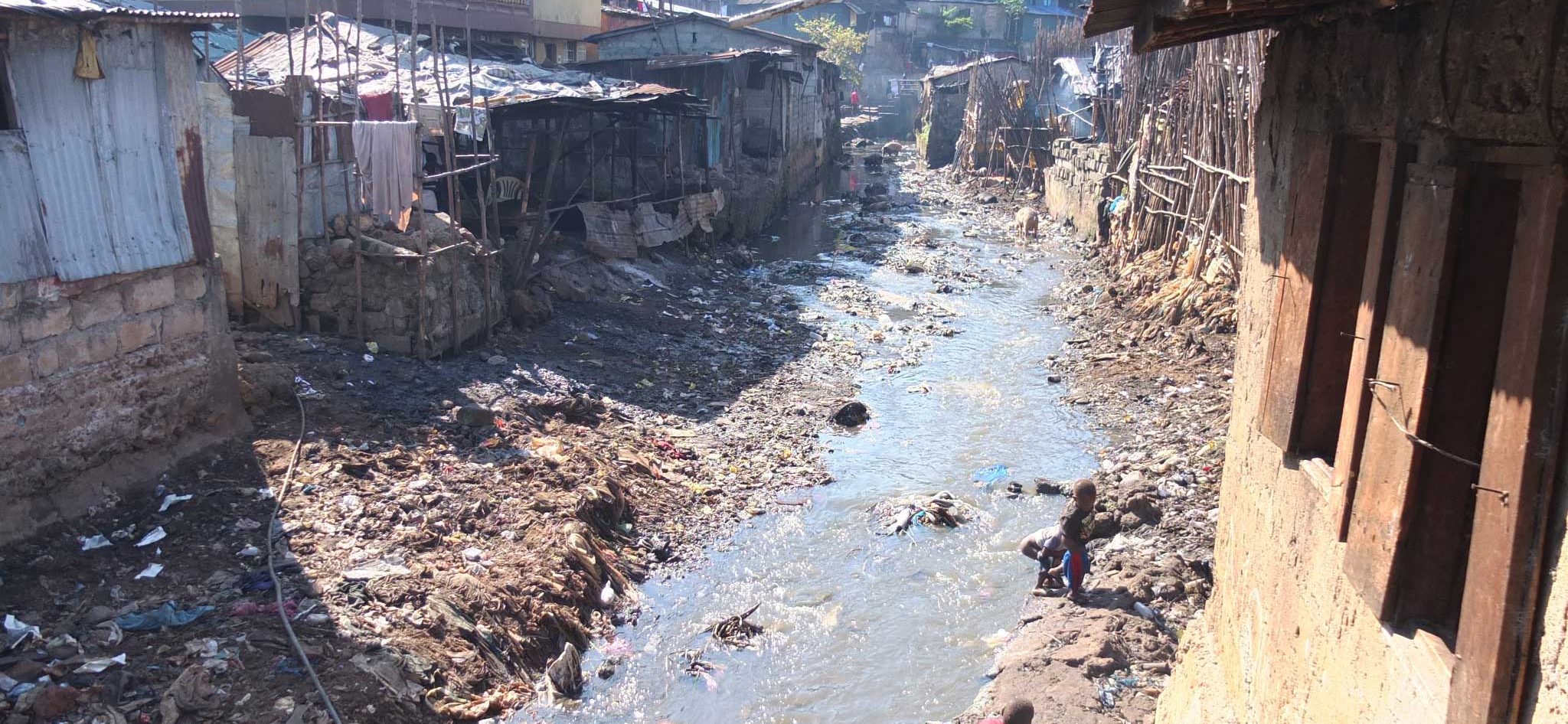
©VALINGOT.jpg
Children in poor countries may benefit most from advanced water reuse, but they must first grow up in an environment free of access and basic sanitation problems, and end open defecation.
UNESCO estimates that in 2015, over 80% of the waste water worldwide was discharged into the environment without any treatment. Rich countries treated 70% of their waste water that year, while those with a middle income treated 32% and the poorer countries only 8% on average, even reaching 5% in the most extreme cases. This is an intolerable waste in areas with water scarcity that also causes an enormous health burden: around five million people die every year due to polluted water, 800,000 of which are a direct consequence of the waste water discharge, according to UN-Water. This affects mainly children: among infants under the age of 5, 361,000 deaths could have been prevented in 2012 by reducing the risks related to the inadequate hand hygiene, sanitation and water.
The environmental deterioration of these discharges is catastrophic. In addition to the ecological destruction and pollution of basins and aquifers, the Intergovernmental Oceanographic Commission (IOC) of UNESCO estimates that in the sea, where most of the untreated water ends, a surface of 245,000 km2 is already a dead area due to pollution. The negative repercussions on the fishing industry and the livelihoods of millions of people around the world are already visible, not to mention the progressive acidification of the ocean due to this pollution and the continuous absorption of CO2. If we continue ignoring waste water as a social and environmental problem we jeopardize efforts to achieve the Sustainable Development Goals and our species will have an uncertain future on the planet.
Focused on the circular economy
In terms of productive analysis, this situation is fundamentally due to the linear economy model we have been living with: extracting-manufacturing-using-discarding. Since the beginning of the industrial revolution, the developed countries have “exported” this model to all economies around the world, especially to the emerging countries; thus, the volume of waste has exponentially and alarmingly increased on Earth in the last two decades.
Recycling has become an essential activity to halt this growing deterioration, but recycling by itself does not solve the problem as a whole, but is framed within a sustainable model that completely eliminates waste and, above all, generates value from it. This is what the circular economy brings.

Gonzalo Delacámara, coordinator of the Water Economics Group of the IMDEA Water Foundation, explains the fundamentals of the circular economy. “Reuse makes it possible to ensure long-term availability and to halt the deterioration of water quality and aquatic systems.”
The circular economy is a science that allows us to preserve natural resources, produce goods with renewable energy, extend their durability to the maximum and consider the waste from the production process as a new resource that adds value to the production chain. In the water sector, this leads directly to the reuse of water, a concept that varies according to the use to be made of the reused water.
To reuse water is not to purify it to return it to the natural environment with the standards of safety for flora and fauna that now exist, but to do so in such a way that it can be consumed again by human activity; it is a question of quality standards, and therefore of legislation and governance, and of investment in technology. It is estimated that currently only 4% of all water consumed in the world is reused; the growth potential of reuse is enormous.
Reuse promises growth and adaptation to climate change
Rich countries lead the way in adopting the circular economy. They are the ones who have the technological and financial resources to do so. Here, the main obstacles in implementing advanced water reuse are management and governance difficulties in creating the necessary economic incentives, and these are factors that vary greatly according to each country’s objectives. The elimination of emerging pollutants is another factor that can add uncertainty to advanced water reuse, and may require new technologies.
On a global scale, wastewater treatment highlights the fundamental problems of water cycle management in the industrialized world. According to Totti Könnölä, executive director of the Insight Foresight Institute, and one of the leading authorities in the circular economy, “production chains have many actors and each of them seeks to optimize its business, but only with its part, it is necessary to assume a new business model”. In rich countries, the challenge is therefore political and managerial, and can transform the socio-economic model by enabling it to withstand the threat of climate change and also generate wealth while safeguarding the environment.
Having overcome this change of mentality, there is enough technology in the developed world to tackle this disruption successfully. Countries such as Israel, which recycles nearly 75% and leads the world in the reuse of wastewater, Spain with 12% and the USA with 6% of water reused, present success stories that mark a roadmap. These cases have shown that wastewater is a valuable resource as it is not only considered as a solution for managing the growing water scarcity in agriculture, but also as a rich source of nutrients, minerals and energy, which can be extracted cost-effectively.
The problems of depressed areas
However, emerging countries, which potentially have the technological capacity to introduce the new circular model, suffer from deep socio-economic imbalances that make wastewater treatment more problematic. These countries, which have contributed most to the increase in water pollution on the planet, are hoarding areas where wastewater is still lethal, and it is therefore urgent to find stable social frameworks to develop the model of reuse with their own resources.
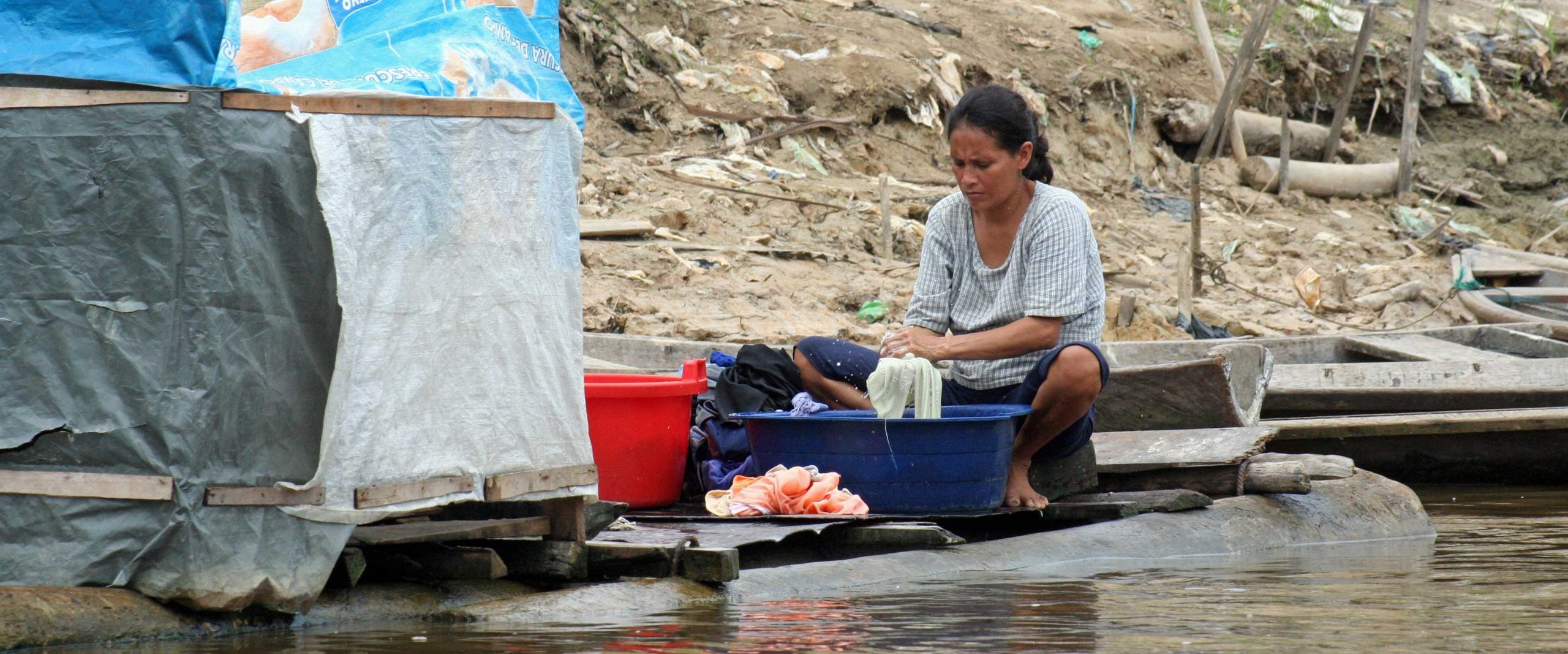
©Monica Tijero / World Bank.
The benefits of having clean water in rivers are not only an environmental matter.
In the short term, the poorest countries have other priorities, such as access to water and basic sanitation, and they have serious shortcomings in order to start technological development from reuse. As the United Nations World Water Development Report 2017 indicates, of 181 countries, only 55 had valid information on wastewater generation, treatment and use; the remaining countries had no information or only partial or outdated data. In the world of reuse, where big data and industry 4.0 are key factors in bringing economic benefits to the entire recycling chain, this deficiency hampers development and makes developing economies vulnerable.
In this sense, Gabrielle Hecht, professor of history at the Stanton Foundation at Stanford University (USA) describes in an essay on Africa the true role of its inhabitants in global change, advocating an equitable distribution of environmental responsibilities and warning against further technological dependence of poor countries: “We have to stop perpetuating the idea that technological solutions will be enough to remedy the current state of the planet, patches that are often devised and designed by northern scientists and engineers and offered to the whole of the South as the solution without taking into account local knowledge, needs and environment,” says Hecht, who adds: “What I question is a notion of the Anthropocene that attributes ecological change to all humanity, without taking into account geopolitics or the power dynamics of inequality.”
Indeed, in many developing countries, lack of access to information and technology is linked to serious governance deficits and a serious water pollution problem. These are the reasons why millions of people still see far away the social, environmental and economic benefits of water reuse and the recovery of useful by-products from the circular economy.
The cross-cutting importance of wastewater is reflected in the 2030 Agenda for Sustainable Development, in the Sustainable Development Goal 6 on water and sanitation and, especially, in Target 6.3 which explicitly calls for the reduction of pollution and improvements in wastewater discharge, management and treatment. Without achieving this goal, the remaining 16 SDG goals will be unlikely to be achieved.

©Edwin Huffman / World Bank
Reusing water can ensure the livelihoods of millions of farmers threatened by climate change.
The benefits of the circular economy applied to water are both economic, health and environmental, and must be extended to the entire planet, especially to countries that suffer most from water stress, lack of sanitation and pollution. Only in this way can we make the Anthropocene a place worthy of living and with a future; we still have time.


